Tooth Filling
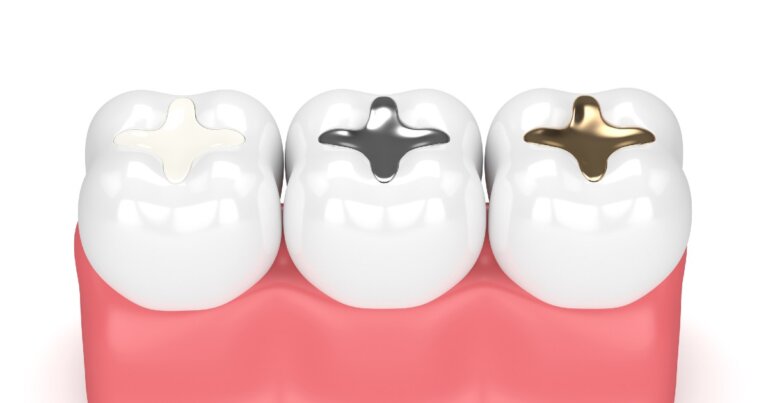
What Is A Tooth Filling?
Tooth fillings, also known as dental fillings, are a common restorative procedure to repair teeth damaged by decay, wear, or minor trauma. This treatment involves removing decayed tooth material and filling the resulting space with a biocompatible material, such as composite resin, amalgam, or glass ionomer. The filling prevents further decay and restores the tooth’s normal function.
Before you deciding on whether A Dental Filling are right for you, there are some things you should know:
- Who Needs A Tooth Filling?
- Benefits Of A Tooth Filling
- Types Of Dental Fillings
- How Much Does A Tooth Filling Cost?
- Steps In The Tooth Filling Procedure
- How Long Does A Tooth Filling Last?
- Frequently Asked Questions About Tooth Fillings
If you have any further questions about A Tooth Filling or other dental services offered at Atlas Dental, please contact us.

Free phone consultation
Have questions about tooth fillings? Schedule a free phone consultation with our Toronto dentist.

5 star google reviews
Our patients love us! See for yourself why more and more people are choosing Atlas Dental for their dental fillings.

Book Emergency tooth filling
Do you think you have cavities and need an appointment? Book an emergency tooth filling online.
Who Needs a Tooth Filling?
You may need a filling if you have:
- Cavities caused by bacteria and acid erosion
- Chipped or Cracked Teeth from trauma or wear
- Worn Enamel due to grinding or acidic diets
Common signs you need a filling include:
- Sensitivity to hot, cold, or sweet foods
- Persistent toothache
- Visible holes or dark spots on your teeth
- Pain while chewing or biting
If you notice these symptoms, visit your dentist promptly. Untreated cavities can progress to more severe dental issues, such as infections or the need for a root canal. If you have further questions about Tooth Fillings, please contact us.
Benefits Of A Tooth Filling
Tooth fillings offer several benefits, including:
- Prevents Further Decay: Fillings seal off the cavity, stopping the spread of bacteria and preventing further decay.
- Restores Function: A filling strengthens the tooth, making it easier to chew and bite without pain.
- Preserves Natural Tooth Structure: By filling the cavity, you avoid the need for more invasive procedures like crowns or root canals.
- Enhances Aesthetics: Tooth-colored fillings, such as composite resin, blend seamlessly with your natural teeth, providing a discreet solution.
- Cost-Effective: Fillings are a relatively affordable way to restore a tooth compared to more extensive treatments.
Types Of Dental Fillings
There are several types of dental fillings, each with its own advantages:
Composite Resin Fillings
Composite resin fillings are tooth-colored fillings blend naturally with your teeth. They are ideal for small-to-medium cavities, especially in visible areas.
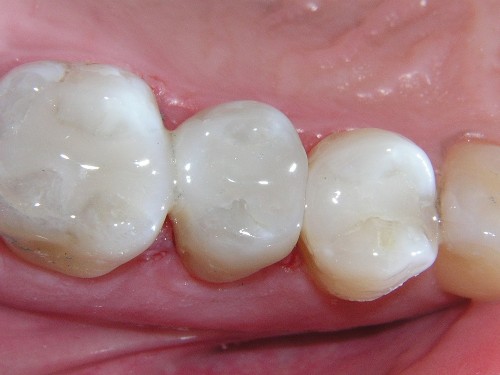
Silver Amalgam Fillings
Silver amalgam fillings are made from a mixture of metals, amalgam fillings are durable and long-lasting. However, their silver color makes them less popular for visible areas.
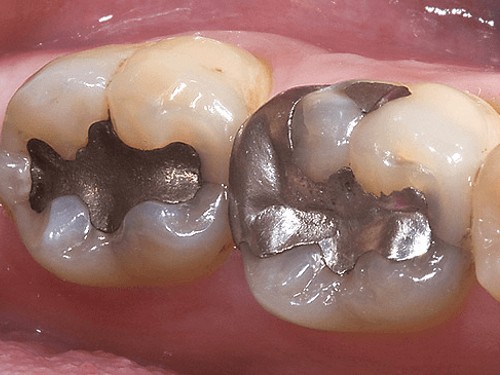
Resin-Modified Glass Ionomer
Resin modified glass ionomer (RMGI) is a fast-setting filling material that releases fluoride, helping to strengthen the tooth and prevent future decay. RMGI is often used in areas where cavities are more likely to reoccur, such as the roots of teeth.
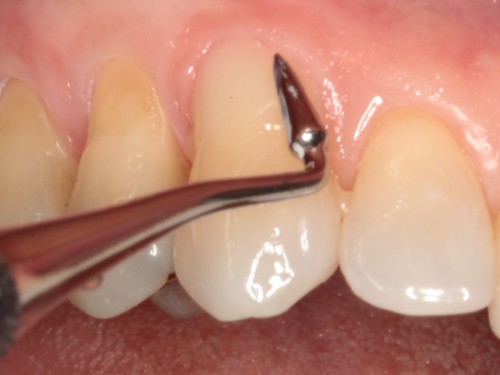
Porcelain Inlays
Porcelain Inlays are custom-made by a dental laboratory. They are used for larger cavities and are more durable than composite fillings but require two dental visits and are more expensive.
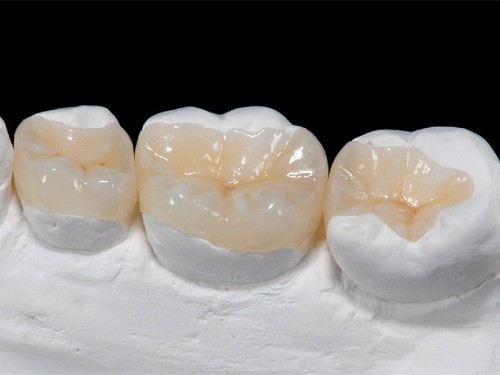
Porcelain Onlays
Porcelain Onlays are a type of dental restoration that is used to repair a damaged or decayed tooth when the damage extends beyond a simple filling but does not warrant a full dental crown. It falls in between these two options and is often referred to as a “partial crown” or “inlay-onlay.”
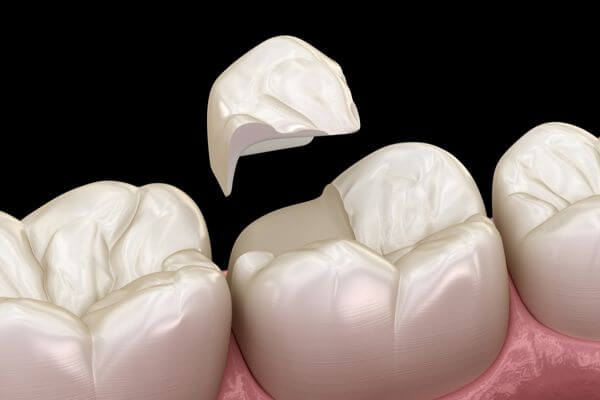
The choice of dental filling material should be made in consultation with your dentist, considering factors such as the location and size of the cavity, aesthetic concerns, durability requirements, and your personal preferences. If you have further questions about Tooth Filling materials, please contact us.
Cost of Teeth Fillings
Routine Dental Fillings cost $207-477 depending on the location of the tooth (anterior, bicuspid or molar), as well as the number of “surfaces” involved. Imagine each tooth as a 5 surface box. Each “surface” of this imaginary box will dictate the size (and cost) of the tooth filling. The codes relevant to regular dental fillings in the Ontario Dental Association’s Suggested Fee Guide appear as follows:
Permanent Anteriors:
- 23111 – One surface: $205
- 23112 – Two surfaces: $256
- 23113 – Three surfaces: $308
- 23114 – Four surfaces: $379
- 23115 – Five surfaces (maximum surfaces per tooth): $400
Permanent Bicuspids:
- 23311 – One surface: $226
- 23312 – Two surfaces: $283
- 23313 – Three surfaces: $339
- 23314 – Four surfaces: $414
- 23315 – Five surfaces or maximum surfaces per tooth: $435
Permanent Molars:
- 23321 – One surface: $246
- 23322 – Two surfaces: $308
- 23323 – Three surfaces: $369
- 23324 – Four surfaces: $451
- 23325 – Five surfaces or maximum surfaces per tooth: $477
Regular Dental Fillings are considered a basic service under all dental insurance plans and should be covered to your maximum insurable limit, but be sure to find out from your dental insurance plan provider how much you are eligible for before going ahead with dental treatment. Our fees are consistent with the ODA Fee Guide.
For patients without dental insurance, Atlas Dental is pleased to offer dental financing through iFinance Dentalcard. Affordable payment plans start at 7.95% for terms of 6 months to 6 years. To learn more about Dentalcard dental treatment financing, follow this link.
Steps In The Tooth Filling Procedure
The tooth filling procedure is straightforward and usually takes less than an hour:
- Examination and X-rays: Your dentist assesses the damage and determines the best filling type.
- Anesthesia: Local anesthesia is applied to numb the area.
- Decay Removal: The decayed portion of the tooth is removed.
- Filling Placement: The material is applied, shaped, and hardened (if composite).
- Polishing: The filling is smoothed to match the natural tooth shape.
The duration of the procedure may vary depending on factors such as the size and location of the cavity, the type of filling material used, and the complexity of the case. If you have further questions about the Dental Filling procedure, please contact us.
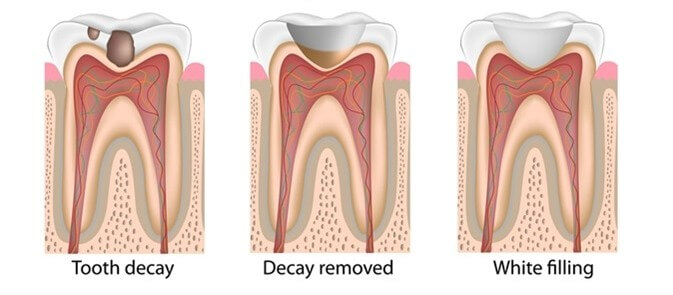
How Long Does A Tooth Filling Last?
The longevity of a filling depends on the material and oral care:
- Composite Resin: 5-7 years.
- Amalgam: 10-15 years.
- Porcelain: 10-20 years.
Proper oral hygiene, regular dental checkups, and avoiding hard foods can extend the lifespan of your fillings. If you have further questions about Tooth Fillings, please contact us.
Frequently Asked Questions About Tooth Fillings
- Do tooth fillings hurt?
No, the procedure is pain-free thanks to local anesthesia. You may feel slight discomfort once the anesthesia wears off, but it is temporary.
- How can I tell if my filling needs to be replaced?
Signs include sensitivity, pain, or visible wear and cracks in the filling. Regular dental checkups can help identify when a replacement is needed.
- Can I eat immediately after a filling?
For composite fillings, you can eat once the anesthesia wears off. For amalgam fillings, wait 24 hours to allow the material to harden fully.
- Are tooth-colored fillings better than silver ones?
Tooth-colored fillings are aesthetically pleasing and ideal for visible teeth. However, silver amalgam fillings are more durable for back teeth.
At Atlas Dental, we are dedicated to restoring your smile with expert care and the highest quality materials. If you suspect you need a tooth filling, don’t wait! Contact us for a free consultation. Let us help you achieve a healthier, more confident smile.

